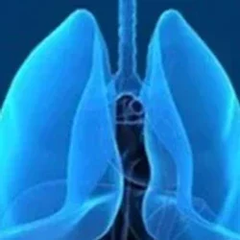
Dr. Spira on the Role of Broad Molecular Testing in Lung Cancer
Alexander Spira, MD, PhD, FACP, discusses the role of broad molecular testing in lung cancer.
Episodes in this series

Alexander Spira, MD, PhD, FACP, a medical oncologist and director of the Virginia Cancer Specialists Research Institute and the Phase 1 Trial Program, discusses the role of broad molecular testing in lung cancer.
All patients with newly diagnosed lung cancer should undergo complete biomarker testing with a full next-generation sequencing panel, says Spira. The results of the test could inform which FDA-approved therapies or clinical trials the patient is eligible for, Spira explains.
However, deciding whether to perform a liquid or tissue biopsy first, as well as whether concurrent liquid and tissue testing is indicated, can be challenging, Spira says. Notably, performing blood-based testing first could expedite treatment, but liquid biopsies are costly and may not provide 100% accuracy, adds Spira.
Recent advances in targeting KRAS G12C mutations, which were largely thought to be undruggable for many years, have pushed the biomarker field forward in lung cancer, Spira says. Currently, the KRAS inhibitors sotorasib (formerly AMG 510) and adagrasib (MRTX849) are in the late stages of clinical development, having demonstrated activity in treating patients with lung cancer who harbor KRAS G12C mutations, Spira explains. Although subtle differences have been observed between the agents and they have not been compared directly, both appear to have a tolerable toxicity profile.
The response rates observed with sotorasib and adagrasib have been lower than those reported with other targeted therapies for patients with RET, MET exon 14 skipping, EGFR, ROS1, and ALK mutations, Spira explains. However, the agents will likely receive FDA approval, and novel KRAS G12C inhibitors will emerge in the lung cancer pipeline to further the paradigm, concludes Spira.












































